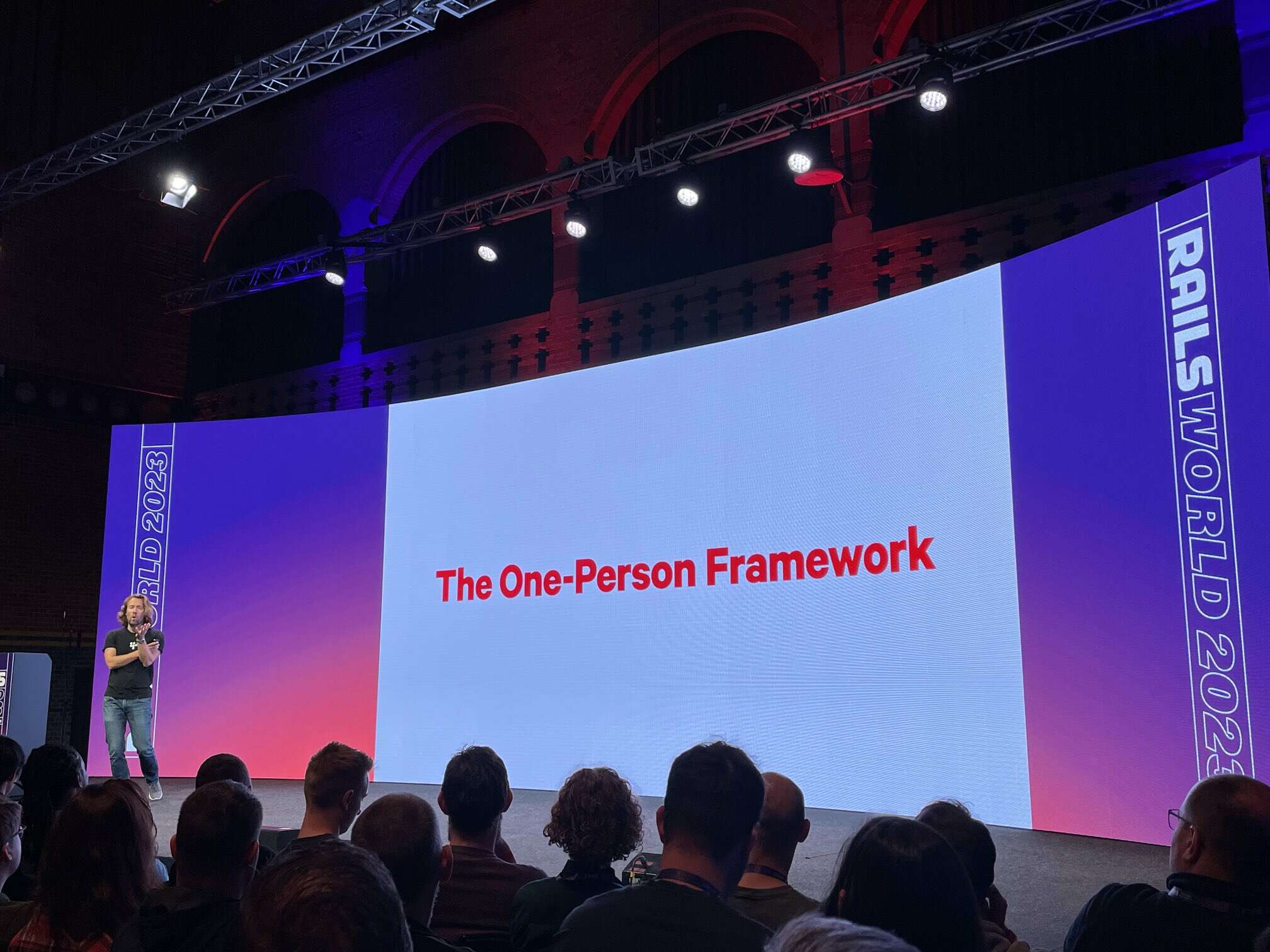dom lizarraga
Financial Wisdom Over Forks.
A Dinner Chat with 2 experienced developers.
Recently, I had the opportunity to have dinner and engage in conversation with Chris O. and Harry L. at Rails World. Eager to delve into the nitty-gritty of consulting, I was particularly interested in uncovering the secrets of how to increase chances of success in this field.
Among the insights shared by DHH was “The One-Person Framework” which enables one to achieve remarkable productivity with Rails. This framework allows for a comprehensive understanding of everything from backend to frontend to deployment, all while Rails navigates through the complexities aiming for simplicity. Inspired by DHH’s insights, I’m keen on taking advantage of “The One-Person Framework” to enhance my consulting practice. The discussion unfolded as follows:

Accounting
-
Always set aside 30% of each income you receive from consulting to cushion yourself when it’s time to pay taxes. 30 is a good figure; it’s enough.
-
Hire an accountant; don’t do it yourself, as it can become difficult.
Accounts
-
The money that a business generates is one thing, and it must be in an exclusive account. Separate it from everything else (LLC or whatever structure).
-
Create a personal account for personal expenses, and avoid mixing expenses. It might seem easy initially, but it can become difficult to handle.
Sales
-
Get with your referals, friends, uncles, cousins, people you were in school with and offer your services, it’d more easy if they own a company or have a decision makier position.
-
When it comes to consulting, once you finish a project and haven’t worked on securing another project, it’s very likely that you’ll end up doing nothing.
-
Therefore, in the hypothetical case that you finish “Project A” in December, dedicate 80% of your time to the project to get it done, and 20% on sales activities (attending meetups, calls, creating content, follow-ups).
-
Then, as you get closer to finishing the project, switch to spending 80% of your time on selling and 20% on the project so that when you finish “Project A” in December, you have “Project B” waiting in January.
Always Work with Contracts
- Include a clause specifying that if the client tells you not to finish, he has to pay you at the point or progress where you leave the project
Work on Building Trust with Clients
-
When you develop for a customer, aim to either cut their costs or increase their revenue/productivity or help them have more control over their business therefore you’ll gain their trust.
- Cut their costs: “Optimize processes to save your customer money.”
- Increase their revenue or productivity: “Enhance features to boost customer revenue and efficiency.”
- Help them have more control: “Empower customers with tools for informed business decisions.”
-
Earned trust will increase eventually like compound interest over the years, as they will share with others how you helped them and how efficient you are.
Where to Find Potential Customers
-
One approach is to get in touch with local marketing agencies and offer to outsource their work to you, whether it’s web apps or web pages. This is beneficial as it’s easier to secure payments from organizations than individuals, and it also enhances your portfolio and reputation.
-
For the point above 👆, show up! Don’t just email them; meet them in person, attend meetups, even those not related to tech.
-
Another approach is to reconnect with previous customers and inquire if there’s another department you can assist; this should happen naturally if you’ve had a good working relationship.
Don’t Convince Customers to Have a Rails App When They Don’t Really Need It (Avoid This 🚫)
-
One individual secured a contract where the customer apparently needed a WordPress management system, but he kept pushing for a Rails application.
-
Somehow, the customer paid him in advance, and after a few months, rejected the project and asked for a refund. By then, he had already spent the money without setting aside funds for taxes, and found himself having to answer to both the customer and the tax authorities.